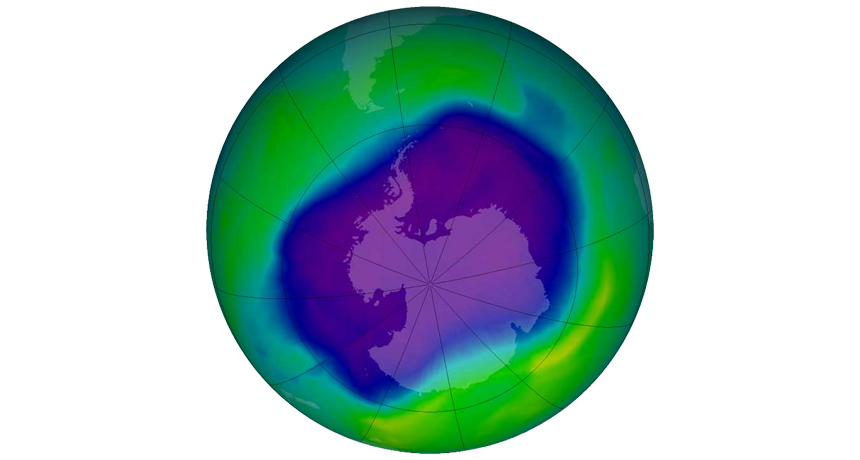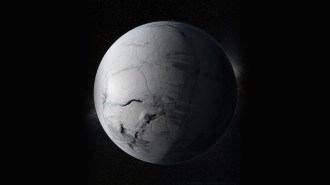
SHRINKING HOLE The ozone hole over Antarctica reached its largest extent in 2006 (purple and blue indicate depleted ozone) before starting to shrink. The international treaty intended to reduce the ozone hole has had a cooling effect on Earth’s climate, a study finds.
NASA







